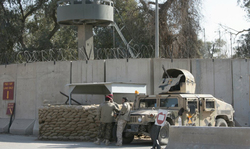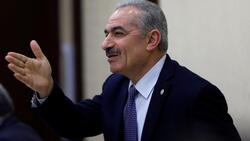Iraqi oil suffers challenges due to buyer’s decline to purchase, Governmental advisor says

Shafaq News / Mudhar Muhammad Salih, the economic advisor to the Prime Minister, Adel Abdul-Mahdi stated on Saturday that some buyers are declining to buy the Iraqi oil due to the global markets saturation with crude stocks, stressing that developing the production and lower prices will deprive Iraq of "large" quantities of production.
“There are two issues that represent the difficult oil equation in Iraq: The first relates to Iraq’s commitment to the OPEC agreement for the commitment being a reality not an option, because there is a global oil glut on two levels. The first oil market is saturated with oil stocks that exceeded the storage capacity in the world because of the world's transportation and industry cupboards stop because of Corona as the supply is still 30% higher than demand,” Saleh told Shafaq News.
He added that "the second level is that the oil supply to Iraq itself is suffering from a problem in its stability. Because the supply in some of the main demand markets is being faltered by some buyers decline to buy and the same international economic reason."
"As for the second party of the difficult oil equation, which is currently undertaken by the oil administration to attain the essential and reasonable solutions due to the growing separation between the oil amount that is paid to international foreign companies (in kind), that is, the cost of developing oil fields (which are mostly fixed-value costs) and the value of the oil paid itself to settle the dues while it is condescending or low in value (that is, according to the currently low oil prices for fixed development costs) which requires compensation in double quantities as Iraq is under production, the stability of development costs and the worsening of prices will lead to depriving Iraq of large quantitative production to address fixed costs and creating a gap detrimental financing for the public finances,” Saleh added.
The advisor indicated to the Iraqi government that "the difficult oil equation is truly two-fold, whose center is the contradiction between the drop in global oil prices and the loss of additional quantities of crude oil to pay the fixed value of dues. This matter is of high attention on the part of the oil and financial authorities in Iraq to search for solutions for the. general budget resources and find a solution to the oil equation. "
The Iraq Oil Report website, which specializes in following up Iraqi oil news, said that Iraq is facing daunting technical and financial complications as it begins to cut oil production in support of an OPEC-plus agreement to take nearly 10 million barrels per day (bpd) off the market to combat falling crude prices.
Unlike previous cuts, this one is so large that Iraq can only meet its new quota by ordering curtailments at oil fields operated by international oil companies (IOCs) – an expensive proposition likely to trigger difficult negotiations with IOCs, given contract provisions that protect companies from discretionary shut-ins by guaranteeing payments for oil ordered to remain below ground.
According to the website, Iraq will not be able to meet the agreement to reduce its share only through agreement with international companies that manage oil fields, and it is expected that it will face difficult negotiations with those companies, given the provisions of contracts that protect companies in such circumstances.
Iraq has committed to reduce its oil production by up to 23 % starting next month, which will affect the current production, which averages about 4.5 million barrels per day (bpd).





